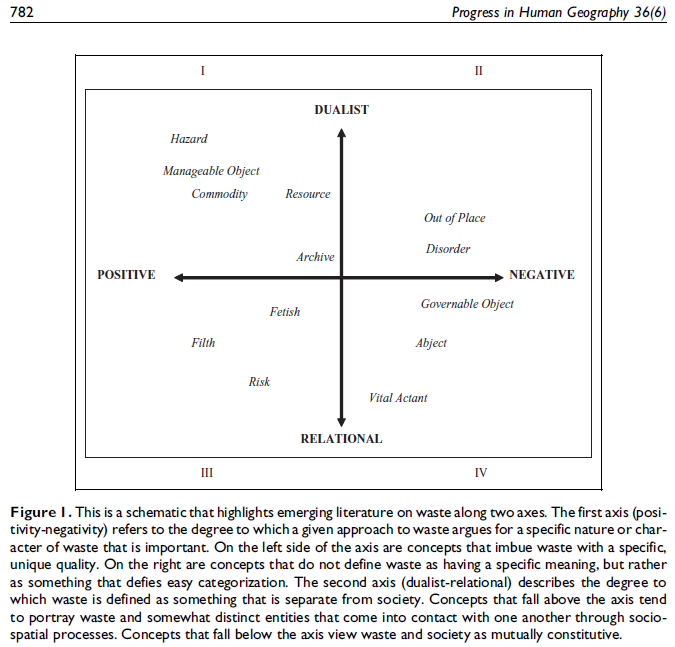Choose an object you routinely throw in the trash. (Include a photo if possible.) Imagine an archaeologist excavating this object 1000 years in the future. What conclusions do you think they will be able to draw about you or your culture based on this object, where it was placed, and the other things they will likely find around it? What are some possible incorrect assumptions they may have about you or your culture based on these material remains?
Readings from this week:
Shanks, Michael, David Platt, and William L. Rathje. “The Perfume of Garbage: Modernity and the Archaeological.” Modernism/Modernity 11, no. 1 (2004): 61–83. https://doi.org/10.1353/mod.2004.0027.
Edensor, Tim. “Waste Matter – The Debris of Industrial Ruins and the Disordering of the Material World.” Journal of Material Culture 10, no. 3 (November 2005): 311–32. https://doi.org/10.1177/1359183505057346.
